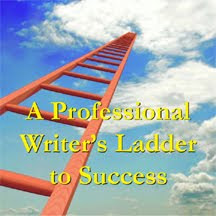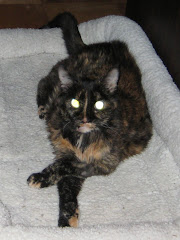Why Writers Love "Breaking Bad"
It's not often enough that I post to this blog, as my workload of other tasks always seems to outrank it. But as we approach the final two episodes of "Breaking Bad" it seems a good time to take a look at the series from a writer's point of view.
BB has been called the greatest TV series ever. Fans ranking it on the Internet Movie Database gave the third-to-last episode entitled "Ozymandias" a perfect 10 score. Pretty much every magazine has written articles to analyze these final episodes, and there have been some fine comedy sketches written about the show as it escalates to the ultimate conclusion.
The accolades are well deserved. This show is excellent in every aspect, from the writing to the casting, acting, editing, soundtrack...even the locations are used to reinforce the messages of the series. But it all starts with the writing.
The Genius Behind The Show
Series creator Vince Gilligan will likely be most recognized in his career for BB but he's been in the business for many years. He worked extensively on "The X-Files" as a producer of various levels. Gilligan also wrote 29 X-Files episodes and directed two of them.
He's worked on other, lesser-known TV series, too. Movies include Hancock with Will Smith and Charlize Theron, and Home Fries with Drew Barrymore and Luke Wilson. His earliest screen credit was as sole writer of the film Wilder Napalm in 1993. Don't remember it? The sci-fi love story starred Dennis Quaid and Debra Winger, but got panned by critics and didn't do well at the box office.
Those 20 years in the business (and who knows how many more before he got his first screen credit) have shaped Vince Gilligan's talents and given him the "mad skills" (as Jesse might say) to engineer a show like BB. It's his painstaking attention to detail that literary writers love. Gilligan likes to use references to his girlfriend, whose name happens to be Holly, in his work. (Sound familiar, BB fans?) We love looking for those little insider tricks of the trade that show up in every episode of this show.
The Team Approach
What's even more amazing for writers who work solo is that teams of writers put together these episodes. While credit is given to one main writer for each episode, the storyboarding and mapping out of each show is done by a team of writers. It's a considerable effort that doesn't just happen.
And we appreciate this. No good piece of writing ever "just happens" -- they all come with a lot of planning, writing, rewriting, editing, and refining to get to the final product. Fellow writers recognize the quality of "Breaking Bad" because we know the amount of effort it took to get to the final version of each script...not to mention everything that comes after it, on the production side.
Just as actors love BB for the acting, cinematographers for the camera angles, and editors for the editing, which are also superb, writers appreciate it for the intense effort that goes into creating the storyline, dialog, camera angles, and other aspects of a script. We learn from watching well-written shows like this, and the lessons are glorious.
Respect the Literature
It's also the literary qualities of BB that appeal to us writers. The characters are developed beautifully into rich and complex people that are believable even when you know that they only exist to serve a certain purpose in the story (e.g., Saul).
The plot line has more twists and turns than a road climbing a craggy mountain. Just when you think it's going to zig, it zags. I've lost count of the number of episode endings that left me sitting with my mouth hanging open, saying, "Whoa! I never saw that coming!"
Colors are used to give subtle hints about a character's nature or where they are in their descent into darkness. Who could miss Marie's obsession with purple, or the repeated use of pink in sometimes disturbing ways. Insiders tell us this is all intentional, and we as writers know and understand that.
There are wonderful moments of foreshadowing and clues to upcoming action placed in every scene. Viewers are always speculating about what's going to happen next based on these clues, and the writers delight in throwing us off course.
Even the extreme violence in BB serves a literary purpose. Yes, it's shocking, and it's meant to be. It grabs our attention and tells us to watch closely because something important is happening. When Walt kills people for the first time, he changes, taking his first step down that road to becoming Heisenberg. He justifies it by saying they were going to kill him, and that they probably deserved to die, much like Dexter justifies his serial killings by only targeting killers on his show. Wouldn't any character try to find some justifiable reason to have killed someone when that's not their nature? Those moments ring true because they're excellently crafted.
Looking In The Mirror
But there's still something more in BB that appeals to writers. The protagonist of the show, Walter White, started out as a meek, powerless nerd, a geeky high-school chemistry teacher and habitual doormat for his controlling wife. Plenty of writers, who are typically bookish types when growing up, can sympathize with that position. We've been bullied, too, by people just like the cruel high school kids making fun of Walt Jr. in an early episode, when they're in a store to buy pants for him for school. We feel for both Walt Jr. and Walt Sr. in that scene. It's also the first one in which we see a glimmer of the Heisenberg to come.
Walt wants more out of life, and the cancer diagnosis that comes at the beginning of the show gives him an excuse to seek it. He transforms himself into Heisenberg, peerless all-powerful drug lord who's respected and feared by his underlings. As Heisenberg, he uses his knowledge to become the best at what he does, just as an author uses skills honed over time to write a book that will hopefully sell well and earn that author respect and admiration. We seize power over life by writing, controlling all our characters' lives and outcomes. We are all-powerful in their world, just as Heisenberg is all-powerful in his.
All the elements of Heisenberg were always there in Walt. The cruelty, the chutzpah, the take-no-prisoners approach, are all aspects of his personality that he's been repressing as a teacher and family man. His covert meth business gives him license to let those parts of himself emerge. They're there in all of us humans, writers or not. BB is a story about the human condition, as is all great literature at its core.
That's also why it's so tough for us to completely hate Walt: even as he's telling off his wife on the phone and saying all the worst things a husband could ever say to a wife, he's doing it through the tears of a loving husband who's trying to absolve her of guilt. We can tell that it's hurting him to say these things as much as it's hurting Skyler to hear them. And make no mistake: even though she catches onto the fact that he's performing for the eavesdropping police, it still has to be hurting Skyler to hear her husband saying these things to her. There's still a glimmer of Walt in the character, the meek schoolteacher who loves his family and only wants to provide well for them. We empathize with his hurt at losing his family, at finally freeing them from what he's been up to.
We've watched Jesse go from a loser druggie with no direction in life to a successful underworld soldier. As his disillusionment with Walt has grown and his own conscience over their actions has developed, we've come to view him more sympathetically, as well. From a character that was originally supposed to be killed off at the end of the first season has emerged someone we can root for, even though Jesse's prospects of surviving until the end seem bleak. Jesse cares about people, truly cares, and will do whatever he has to do to keep them safe. We respect him for that. Does it redeem him for everything he's done? No, but he's probably become the most moral character on the show.
As Walt watched the fruits of what he set in motion play out in the desert, I'd like to think that he realized that his true nature was not so much as Heisenberg, but more as plain old Walter White. He cut his ties to the meth-empire life, albeit with great cruelty, and tried one last time to become that person he used to be again, but it was too late. He's now lost the one thing that supposedly turned him to his dark side. As he walks away from the family he still loves, we feel a sense of loss right along with him. Commanders of the worlds in our own work as writers, we are caught up in another writer's vision and carried along like so much flotsam and jetsam on its whitewater rapids.
Anticipation
We've seen in flashes forward that Walt is returning to Albuquerque to finish something, and we can tell that end is going to be violent. We'll continue to watch to the final scene, spellbound and disbelieving.
Thanks, Vince Gilligan, for a great ride that's lasted five seasons spread out over six years. We'll miss all these characters and the world you and your excellent team have built for us. This show will be analyzed for years to come, just as have other critically acclaimed series. But this one rises above them all. We recognize good writing when we see it, and we tip our Heisenberg hats to you for this one.









Great perspective Lynn. I was new to BB this year and consumed Walt's transformation in only a few months - instead of it percolating over the years - another tribute to the writers - because it was easy to digest in the world of instant gratification and on-demand streaming.
ReplyDeletePoor Jesse is right. And to think at the very beginning, we saw him as the "criminal".
Beautiful post, Lynn! You nailed it with the WRITING is the gold at the end of the day...albeit the acting, directing, and photography are also basically untouchable. Thanks for this!
ReplyDelete